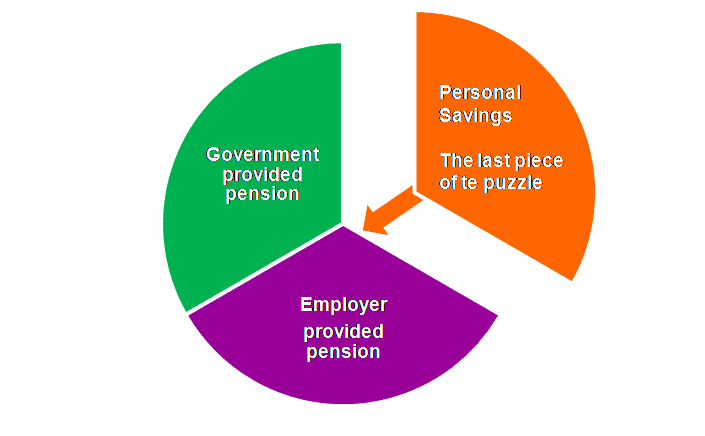
Ah, retirement! It’s something we all think about, right? That time when we can finally leave the hustle behind and enjoy life. But with prices rising daily in Nigeria, it’s tough to figure out exactly when and how much you need to retire comfortably.
Some say ”Retire early.” Others say ‘’Work till you drop.’’ There’s also advice to save a fixed amount, while some may suggest multiplying your salary. It’s easy to get lost in the noise!
So, how do you decide when to retire and how much you’ll actually need to live comfortably?
To make things clearer, we reached out to five financial experts for their insights. By the end of this article, you’ll be able to answer questions like:
- What’s the official retirement age these days?
- Should civil servants aim for a specific amount in naira or consider saving in other currencies?
- Is there a pay range to target?
- What key factors should you consider when planning for retirement?
Let’s get right into it.
When should you officially stop working as a civil servant in Nigeria?
To many of us who go to work every day, retirement sounds wonderful. Early retirement sounds even better. In Nigeria, the official retirement age for civil servants is 60 years or 35 years of service, whichever comes first, as emphasized by Olufowose Segun, Agent Field Officer, Ekeohuru Bryan, Financial Auditor, and Dozie Osuji, Accounting Professional.
However, Fiyinfoluwa Adeyemi, a Relationship Officer, notes that while 60 is typical, individual professions may vary:
A. Government vs. Private Sector
Government: Standardized at 60 years or 35 years of service, with clear pension structures.
Private Sector: More flexible and company-specific. Adeyemi explains that industries like banking use “age-to-grade” systems, encouraging or requiring early retirement—sometimes as young as 50—based on perceived value and productivity.
B. Exceptions to the Rule Certain professions enjoy extended retirement ages:
Academia: University professors often retire at 70, other academic staff at 65.
Judiciary: Judges, especially in higher courts, may serve until 70.
Senior Advocates of Nigeria (SAN): Often practice well into their 70s or even 80s.
Medical Professionals: May receive extensions, particularly during periods of shortage.
Teachers: As per the NUT announcement on October 6, 2024, 23 states and the FCT now have a 65-year retirement age for teachers, reflecting a 2020 change implemented by former President Buhari.
How much do you need in Nigeria to retire comfortably?
This is the million-naira question, quite literally. With inflation and currency devaluation constantly eroding purchasing power, planning for retirement requires more than just saving a fixed amount.
Adeyemi highlights that no fixed figure guarantees a comfortable retirement because of the unpredictable nature of the Naira’s value. Osuji echoes these concerns, pointing out that Nigeria’s economic instability makes it difficult to set a reliable savings target. Living costs in cities like Lagos or Abuja require at least ₦500,000 ($294) per month to stay afloat, she explains, while in smaller towns, the range might be slightly lower at ₦350,000–₦400,000 ($206–$235).
However, these estimates are shaky at best given the rapid devaluation of the Naira. Osuji warns that saving in Naira could feel like “hustling backwards” if the currency continues to lose value. Ekeohuru further notes that retirement savings goals have shifted dramatically. He recalls that his father retired in 2017 with ₦30 million—a comfortable amount at the time.
Today, however, Bryan estimates that civil servants need closer to ₦100 million ($58,858) to maintain a similar lifestyle. His father’s monthly income ranged from ₦200,000 to ₦300,000, which was solid back then, but that same amount offers only modest comfort today.
While Olufowose suggests that earning ₦200,000 ($118) per month could provide reasonable comfort in retirement, Funsho emphasizes that savings benchmarks vary widely. Individual contributions, career growth, and consistency play significant roles in determining how much one should save. There’s no one-size-fits-all target.
According to the National Pension Commission (PenCom), retirees typically need about 50–80% of their pre-retirement income to maintain their standard of living. But even this is complicated by inflation, which erodes the value of savings over time.
Ultimately, retirement planning in Nigeria isn’t just about hitting a magic number; it’s about staying ahead of inflation, managing currency risks, and ensuring your savings retain value over time. As Adeyemi points out, what seems sufficient today may not be enough in the near future without strategic financial planning and diversified investments.

Should you save for retirement in Naira or Dollar?
This is a tough one to answer for Nigerians navigating inflation and the devaluation of the local currency. With the Naira losing value annually—often by more than 6% depending on economic conditions—many retirees are rethinking how to safeguard their savings against future risks.
Adeyemi recommends saving in more stable currencies such as the US Dollar to hedge against the Naira’s unpredictability. This option becomes especially important if you plan to retire abroad or anticipate having significant expenses in foreign currencies, such as paying for healthcare or supporting children studying overseas. Holding foreign currency can help avoid losses from exchange rate fluctuations, offering more security than relying solely on local savings.
However, Funsho points out that for most civil servants, savings are still primarily held in Naira, as the Pension Reform Act discourages “dollarization” of the economy. Contributing to a Retirement Savings Account (RSA) in Naira remains the default option for many workers due to local regulations and ease of access. Yet, Funsho acknowledges that inflation significantly reduces the purchasing power of Naira savings over time, creating a challenging environment for long-term financial planning.
Olufowose also agrees that saving in foreign currencies provides an advantage, but not everyone has the financial capacity to do so. While holding RSAs in USD, EUR, or GBP can shield retirees from local currency risks, many Nigerians are left relying on Naira-based savings simply because their incomes and expenses are rooted in the local economy.
Reflecting on Osuji’s warnings about “hustling backwards,” it seems that if retirees save only in the local currency, they risk depleting their savings faster than anticipated.
There’s really no one-size-fits-all approach.
If you can, diversifying your savings—by holding part of your retirement funds in foreign currency alongside Naira—can offer a more balanced strategy. Either way, your choices must align with the policies of your Pension Fund Administrator (PFA) and comply with Nigerian financial regulations.

Other Retirement Saving options in Nigeria
Beyond the mandatory pension schemes, Nigerians have multiple ways to build a secure retirement fund. While the Contributory Pension Scheme (CPS) serves as the primary framework—ensuring employers and employees contribute regularly—its limitations are becoming clear. With inflation eroding returns, many find CPS alone isn’t enough to guarantee long-term comfort.
Voluntary contributions offer an effective way to boost savings. These extra deposits come with tax benefits, easing your financial load. However, early withdrawals (within five years) attract taxes on returns, meaning consistency is crucial. Voluntary savings provide flexibility but require disciplined planning to maintain funds until retirement.
Real estate remains a popular option for those seeking stable growth. Owning property in Lagos or Abuja can generate rental income and appreciate over time, but the upfront capital required is often significant. Stocks and bonds, on the other hand, offer higher returns with less initial investment, though they carry greater risk due to market volatility.
To minimize exposure to the Naira’s instability, some Nigerians are turning to global investments. International real estate and foreign stocks provide opportunities to grow wealth while shielding savings from currency fluctuations. Others opt for precious metals like gold or lithium, which hold value even during economic downturns and act as a hedge against currency depreciation.
Meanwhile, younger investors are exploring cryptocurrencies like Bitcoin. Though volatile, crypto offers the potential for high returns and serves as an alternative investment. However, it demands careful market monitoring and a strong appetite for risk.
Local high-interest savings accounts or fixed deposits offer a simpler solution. Some banks provide competitive interest rates, often linked to your account balance, helping offset inflation’s impact. This option offers more stability, though the returns may not be as high as riskier investments. The best approach combines these strategies.
How can you plan for retirement?
Achieving a comfortable retirement requires strategic planning. Here are some effective ways to maximize your savings:
Start Early: The earlier you begin saving, the more your money can grow through compound interest. For instance, saving ₦10,000 monthly at age 25 could yield over ₦35 million by age 60 with a 7% annual return. Establish automatic transfers and gradually increase contributions as your income grows to develop healthy saving habits.
Continuous Education: Stay informed about economic trends and investment opportunities by attending workshops or pursuing courses on financial planning. Seeking advice from certified financial planners familiar with the Nigerian economic landscape can also help optimize your retirement strategy.
Manage Debt: Prioritize repaying high-interest debts to free up more funds for savings. Avoid taking on new debts as retirement approaches, focusing on maintaining financial stability.
Explore Additional Income Streams: Side hustles like freelancing or monetizing hobbies can provide extra funds for retirement.
 Image Credit: BCHActuarial
Image Credit: BCHActuarial
What to consider when planning your retirement in Nigeria
Retirement planning in Nigeria comes with unique challenges that require careful consideration:
Economic Instability: Persistent high inflation can erode savings. To combat this, choose investments that offer returns exceeding inflation. The Naira’s depreciation also necessitates investing in foreign assets to safeguard your savings.
Limited Social Security Support: With an inadequate public pension system, personal savings and family support become crucial. Incorporating private healthcare costs into your retirement plan is essential, as public options are limited.
Changing Family Dynamics: Urbanization has weakened traditional extended family support systems. Balancing personal financial needs with familial obligations is key to ensuring a secure retirement.
Longevity Risk: As life expectancy increases, your savings must last longer. Comprehensive health insurance and a well-planned budget for medical expenses are vital.
Limited Financial Products: Nigeria’s developing annuity market offers fewer guaranteed income options, making personal investment management imperative to secure a steady income during retirement.
Bottom Line
Deciding to retire early is a personal choice that depends on individual savings and lifestyle goals. While early retirement offers benefits like increased travel opportunities, new ventures, and more time with loved ones, it requires careful financial preparation.
To be practical, consider aiming to save around 80% to 90% of your pre-retirement income for each year of early retirement, with the 4% rule as a useful guideline for estimating safe withdrawal amounts.
Ultimately, building a strong savings foundation and employing informed investment strategies are crucial for enjoying your retirement, whether you choose to retire early or at the traditional age.
Key Takeaways:
- Start Early: Compound interest is a thing. The earlier you save, the more your money can grow, significantly enhancing your retirement fund.
- Diversify Investments: Spread your investments across various asset classes and geographies to mitigate risks.
- Increase Financial Literacy: Continuously educate yourself to understand the economic landscape in Nigeria and seek professional advice to make informed decisions to navigate your retirement planning effectively.
- Manage Debt Wisely: Prioritize repaying your debts and avoid accruing new debts as you approach retirement. Keeping your financial obligations in check allows you to allocate more resources to your retirement savings.
- Create Multiple Income Streams: Side hustles and rental income can supplement your primary pension and provide additional financial security during retirement.
*Disclaimer: This article is for informational purposes only and does not constitute financial advice. The exchange rates mentioned in this article are based on today’s black market rates and are subject to fluctuations.*
